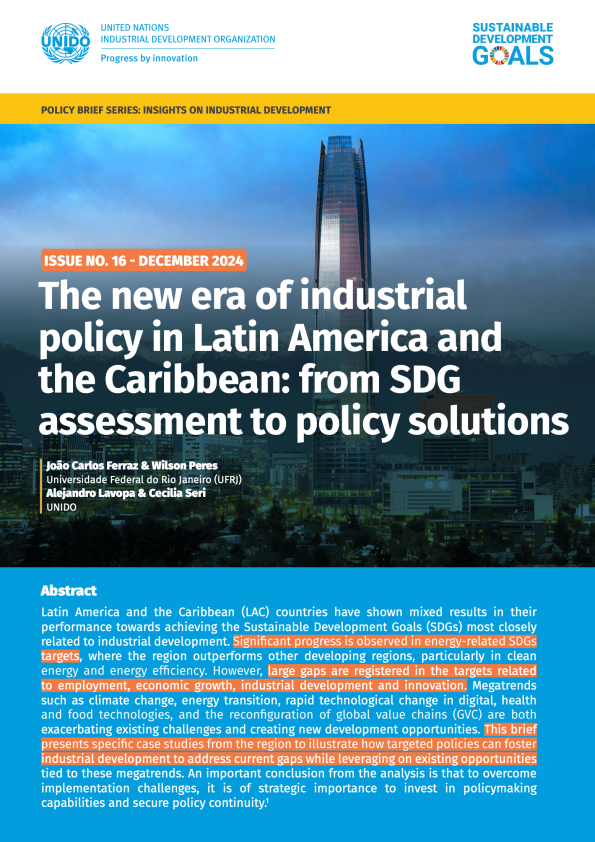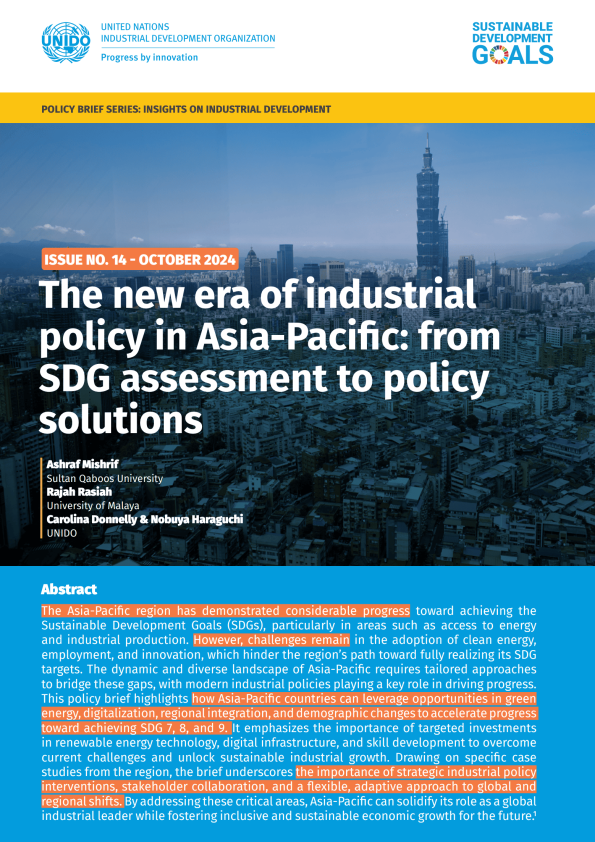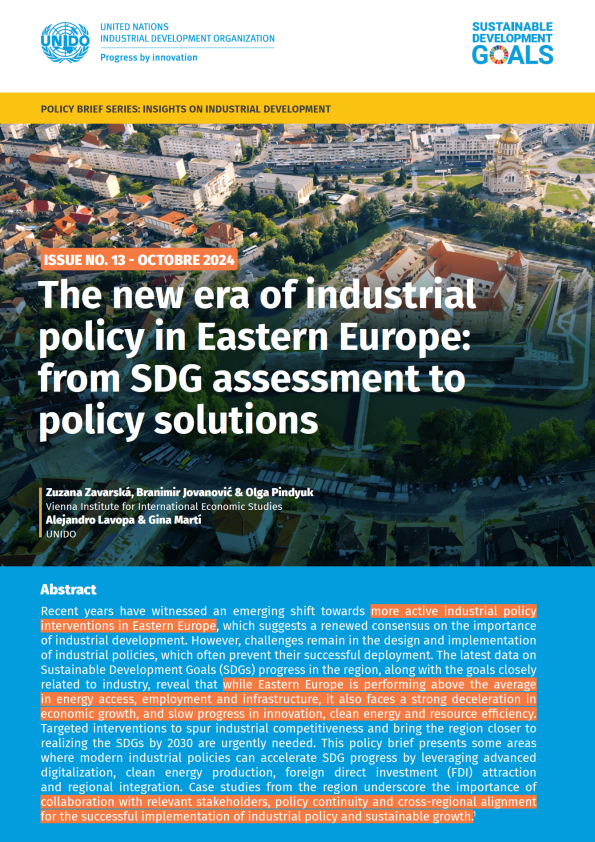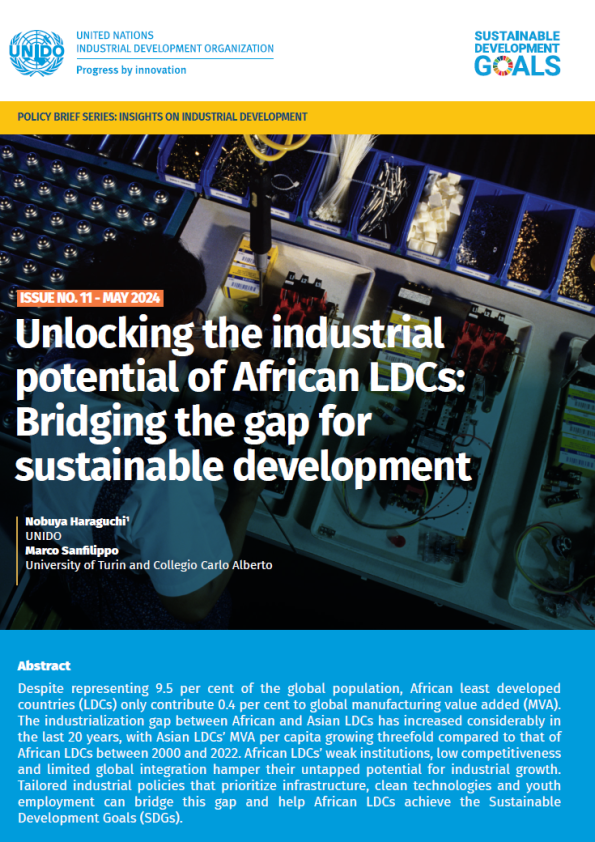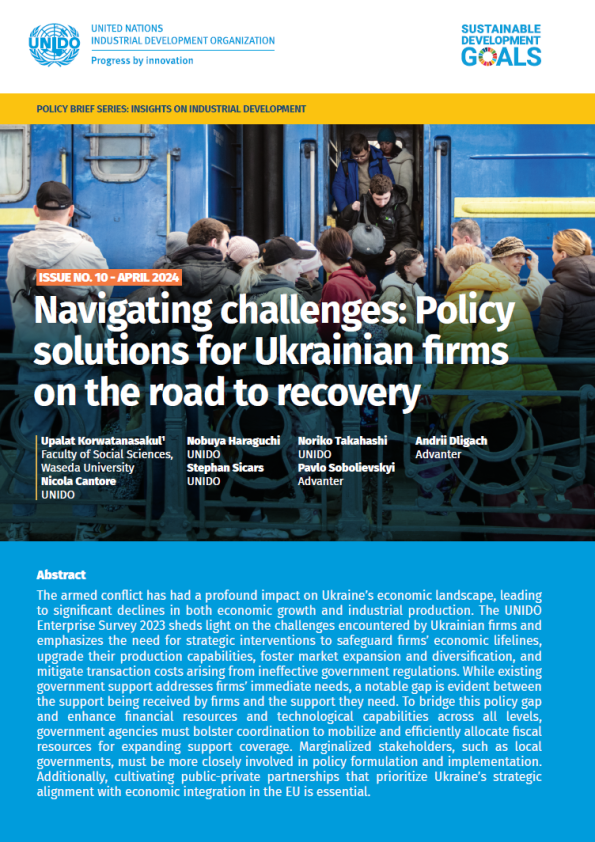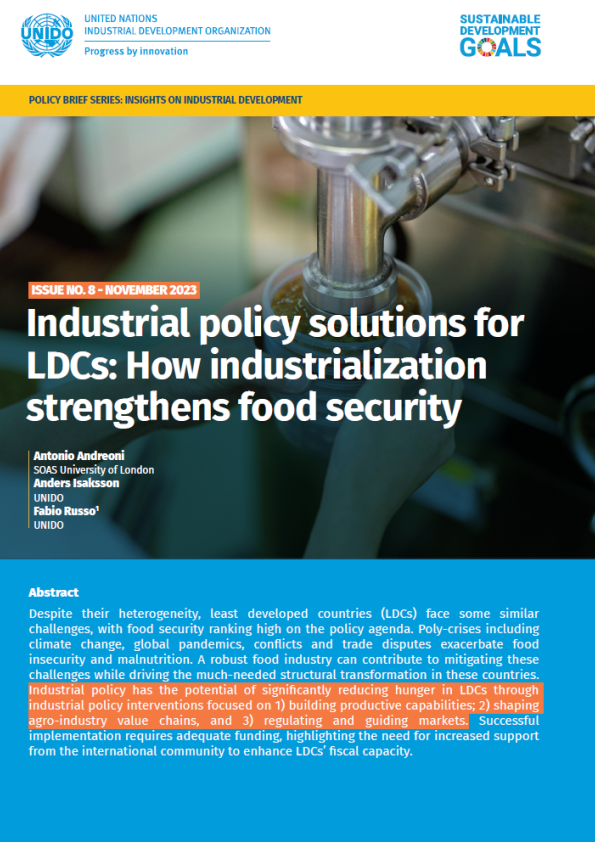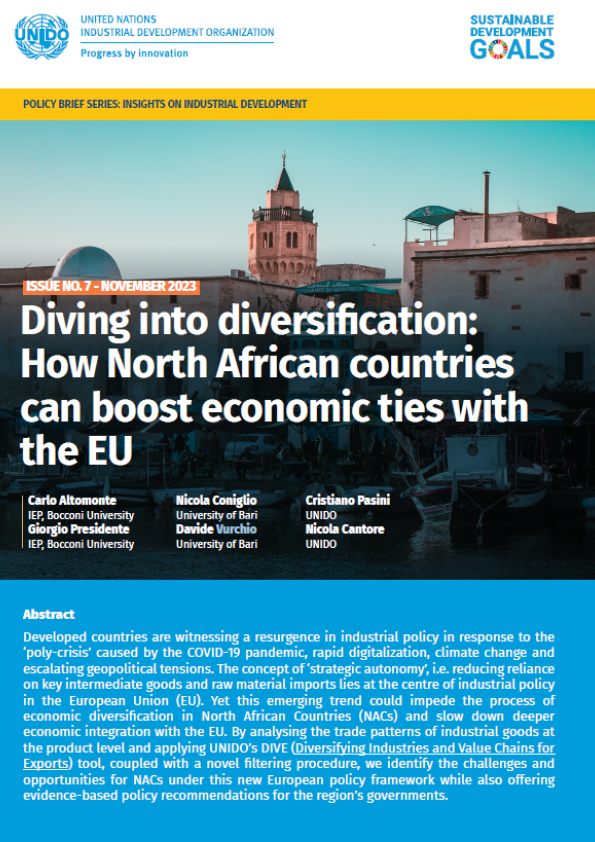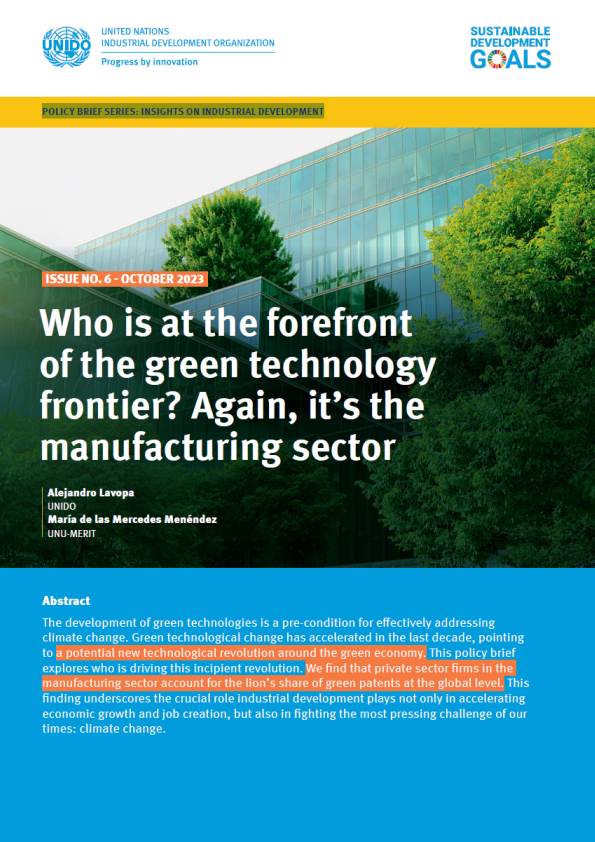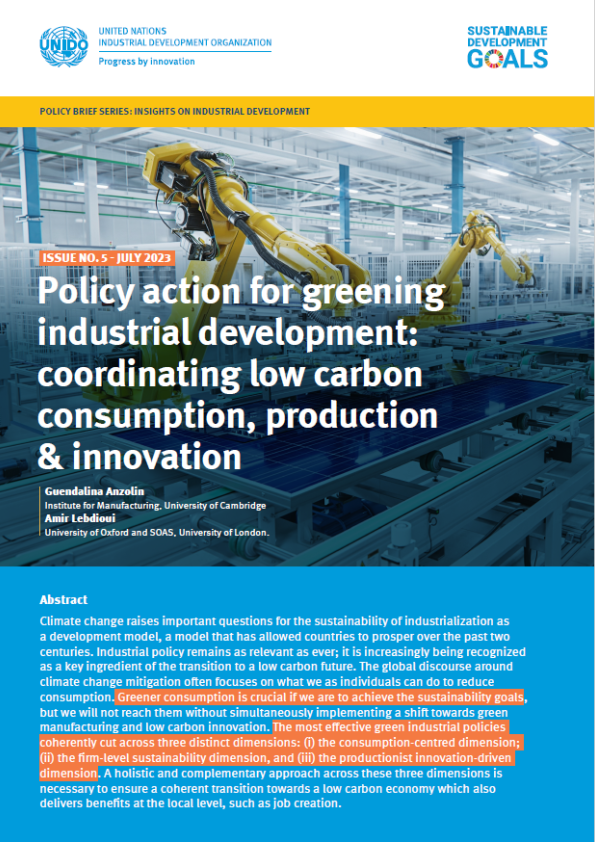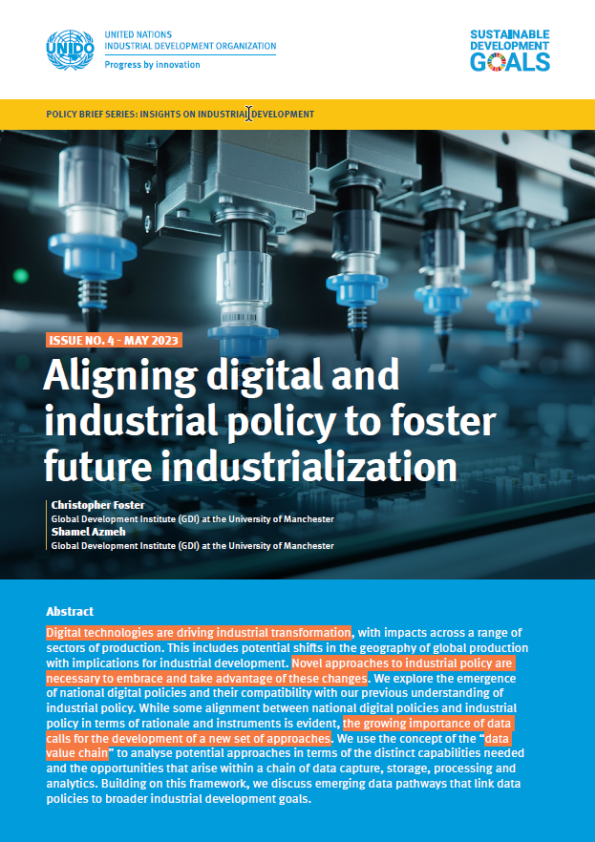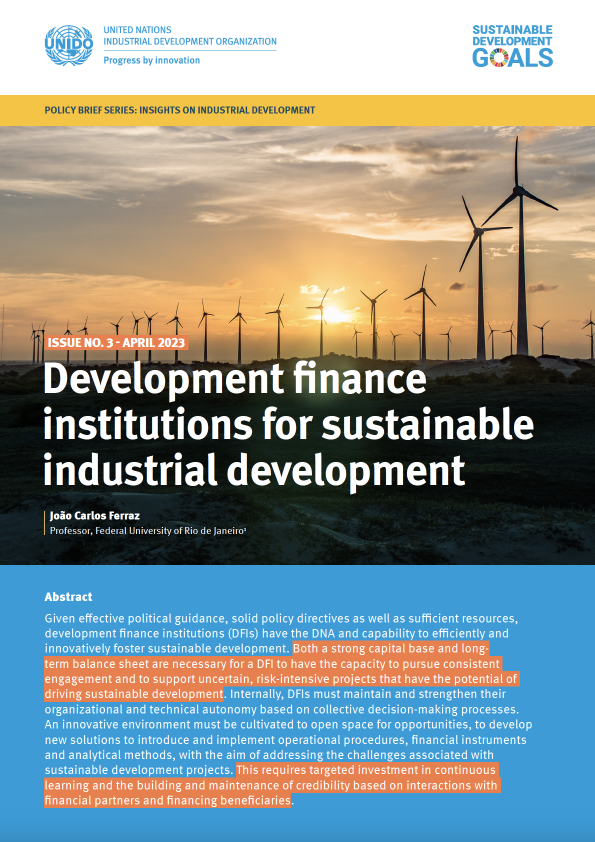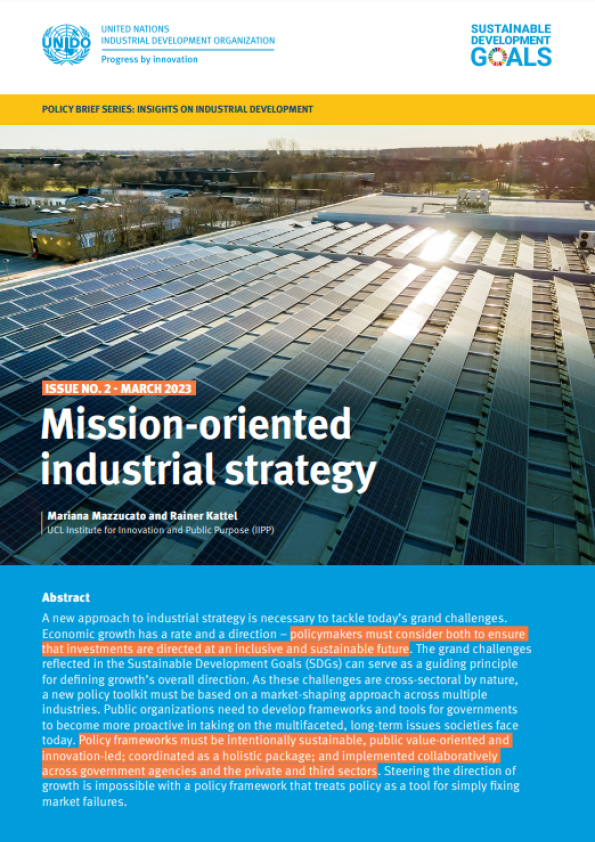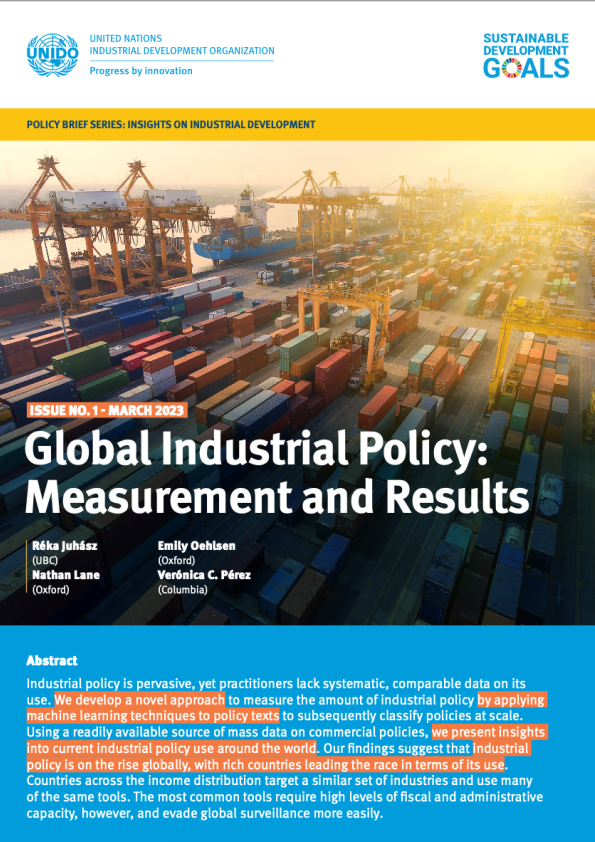
2025 | Author(s): R. Asiama, E. Avenyo, A. Habiyaremye, P. Ncube, F. Tregenna, C. Donnelly & A. Lavopa
#Policy Brief
Africa stands at a crucial juncture, with both significant challenges and a vast potential for transformative growth through industrial development. Despite progress, the continent faces substantial gaps toward achieving the Sustainable Development Goals (SDGs), particularly in access to energy, economic growth, job creation, industrialization, and innovation. Future-ready industrial policies that are rooted in Africa’s unique context and resources can catalyse SDG progress by creating economic resilience, driving innovation, generating decent jobs, and spurring structural transformation. This policy brief explores how African countries can engage with and leverage global megatrends such as the energy transition, digital transformation, and regional integration to unlock sustainable development opportunities.



